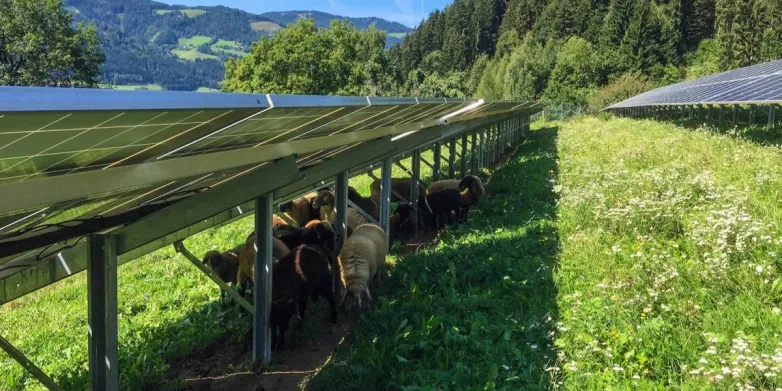Solar projects enable biodiversity
- Eco-Tec, an Austrian PV business, is accepting a start-up, Meine Blumenwiese, to ecologically update ground-mounted solar projects. The two companies aim to create clean power while likewise creating brand-new environments for a variety of bugs as well as animals.

Competitors for land is a hot subject when it involves ground-mounted PV varieties, but a brand-new collaboration in between Austrian PV business Eco-Tec as well as startup Meine Blumenwiese shows that such projects can be just as environmental as the energy they generate.
Eco-Tec plants blossoms on cultivatable land to develop new environments for bugs and also wild animals, while also aerating the soil. Meine Blumenwiese then maps the resulting biodiversity, with every square meter offered a numerical code. According to Eco-Tec, renewable energy, agriculture and environmental protection can converge in the building of ground-mounted solar projects.
Good dirt structure additionally assists in the construction of solar parks. Partial shading as well as the presence of flowers indicates that less water vaporizes, demonstrably boosting the biodiversity of vegetation as well as fauna in short periods of time.
" This sustainable numerous use land, on the one hand for photovoltaic or pv systems, on the other hand for agriculture, counteracts the shrinking of living space and advertises biodiversity," claimed Eco-Tec. "Organic lawnmowers like lamb obtain fresh meadow plants as food."
A current report by Germany's federal firm for new energy, Bundesverband Neue Energiewirtschaft (BNE), suggested that the installation of ground-mounted solar plants on run-down stories of land could even enhance biodiversity, thus projects might shelter ecological communities. Solar parks have been located to be specifically appropriate as summer habitats for amphibians and reptiles. Several bird varieties were also identified in solar projects sites by the German scientists.
One more recent paper by scientists at Oregon State University showed that the combination of solar energy and farming is not just a service for land-scarce countries such as the Netherlands as well as Japan. In fact, this mix can likewise enhance returns from some agricultural tasks as well as the panels themselves.
Scientists from the European Union's Joint Research Center lately assembled a thorough dataset of the solar energy capacity of the bloc's 28 member states. The data revealed that even a sharp rise in current solar generation capability would certainly require a restricted amount of land-- a great deal less than wind power.
Also read

